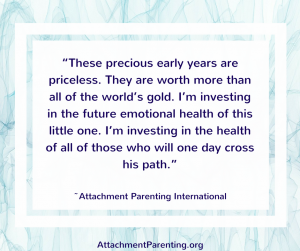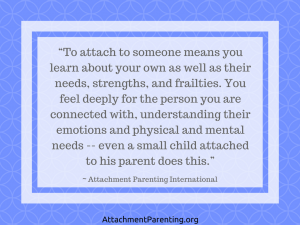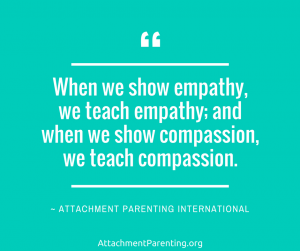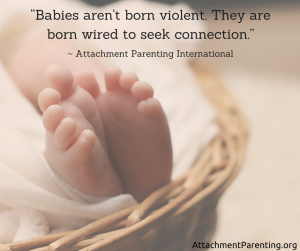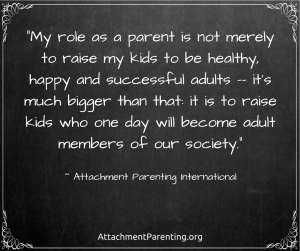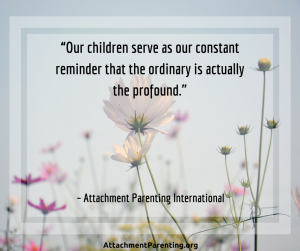Category: Principles
Is it possible to parent without shame?
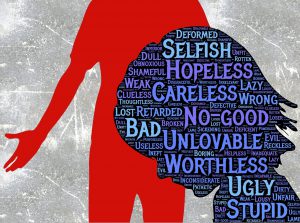 “Parenting without shame” is a hot topic on search engines. Google pulled up more than 5 pages for me of links with this search term. It seems that many parents are looking for ways to raise their children without shame.
“Parenting without shame” is a hot topic on search engines. Google pulled up more than 5 pages for me of links with this search term. It seems that many parents are looking for ways to raise their children without shame.
But is this possible?
Shame is among the myriad normal emotions felt by humans in certain social situations. It is borne of a feeling that one has violated the standards of their social group. With this in mind, it would be nearly impossible to eliminate shame from a child’s emotional repertoire.
No, I don’t think it’s shame in and of itself that we parents fear. We understand that, as an emotion, shame is an uncomfortable feeling. But denying the feeling of shame completely is like denying anger as an emotion. It’s neither practical nor healthy.
Actually, what we parents fear is inadvertently raising our children with an identity shaped by shame. And this is a valid concern. Past generations used shame pervasively as a discipline technique, and many of us can identify parts of ourselves still tied to a shame-based self-image years and decades later. We do not want our children to grow up in a family environment where shame is promoted.
But we must still value discipline. Our children thrive with warmth, sensitive responsiveness, empathy, trust, nurturing, and boundaries. Boundaries on behavior guide children toward the family values we hope to pass down. Boundaries are healthy. They keep the child’s developing mind knowing the parameters of what is safe in the world and what is not, what is expected by his social group or not, how she can gain a feeling of contentment or not. Children need the structure provided by boundaries.
So, therein lies the question: How do we teach our children boundaries in their behavior without instilling a shame-based self-image? The seventh of Attachment Parenting International‘s Eight Principles of Parenting — Provide Positive Discipline — is how. Being consistent and firm, yet not harsh or punishment-based, positive discipline creates an environment that specifies the boundaries of behaviors for a developing child without relying on physically hurtful or emotionally manipulative tactics to control and coerce children. The goal of positive discipline is instead to teach and guide. And it works.
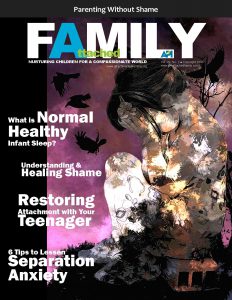 This latest issue of Attached Family, “Parenting Without Shame,” explores and examines shame at its core — what is it, how does it differ from guilt, when does it cross the line from a normal to unhealthy emotion, the effects of toxic stress, and the great difficulty it is to heal a shame-based self-image. It’s an in-depth look at a rather scary emotion, but it gets to the heart of an often-misunderstood topic, and it affirms how positive discipline and Attachment Parenting is protective of our children’s self-worth in a shame-based world.
This latest issue of Attached Family, “Parenting Without Shame,” explores and examines shame at its core — what is it, how does it differ from guilt, when does it cross the line from a normal to unhealthy emotion, the effects of toxic stress, and the great difficulty it is to heal a shame-based self-image. It’s an in-depth look at a rather scary emotion, but it gets to the heart of an often-misunderstood topic, and it affirms how positive discipline and Attachment Parenting is protective of our children’s self-worth in a shame-based world.
Click here to access the online magazine and be inspired in your parenting,
Rita Brhel, Executive Editor of Attachment Parenting International
What does it mean “to attach”?
How we teach empathy and compassion
Babies are born to connect
My role as a parent
The ordinary is profound
Attached Family: Parenting without shame
 Attachment Parenting International (API) is pleased to announce the release of the latest issue of Attached Family: “Parenting Without Shame.”
Attachment Parenting International (API) is pleased to announce the release of the latest issue of Attached Family: “Parenting Without Shame.”
In this issue of Attached Family, API examines shame versus guilt and how shame contributes to emotional trauma. API looks at the intersection of parenting and shame, keeping in mind that shame is a normal emotional response to certain social situations, but like anger or disappointment, when unresolved, shame can lead to lifelong difficulties.
Inside this issue, you’ll find mind-bending, inspiring, and empowering features to stretch your parenting wings:
- “What is Shame?” by API Executive Editor Rita Brhel — defines shame, how it differs from guilt, when it crosses the line to become toxic shame, and what parents need to know
- “Core Beliefs Color Your Parenting,” also by Rita Brhel — explains how shame-based core beliefs affect our everyday decisions, including our parenting behaviors
- “What Makes Emotional Trauma? Fear, Disconnect and Shame,” an interview with Daniela Sieff, PhD — explores the ingredients to developing a shame-based view of oneself and what is all involved in healing, which certainly underlines the importance of prevention through parenting
- “Parenting as a Protest Against Hate” by Lauren Gottschalk-Scher, motherhood fashion designer — looks at how parenting can be activism
- “What is Normal, Healthy Infant Sleep?” by API KnowledgeBase Coordinator Art Yuen — discusses what biologically normal sleep in infants, and adults, looks like and the effects that artificial light and work productivity expectations have
- “6 Tips to Lessen Separation Anxiety,” also by Art Yuen — looks at goodbye routines and other ideas for children and their parents when separation is necessary, such as for working parents
- “Self-Validation Before Self-Control” by Denise Durkin, MA, child mental health consultant — explains how development of a positive self-worth must be in place first before trying to teach a child self-control
- “Engagement vs Redirection to Create Emotional Safety,” also by Denise Durkin — describes the differences between these two discipline techniques and why engagement may be the better choice
- “11 Ways to Parent Outside the Box” by Brooke Campbell, MA, creative therapist — gives ideas on how to incorporate more attunement in parenting
- “How to Heal Attachment with Your Teen” by Shoshana Hayman, Neufeld Institute Faculty — outlines how the teenage years can reveal attachment weaknesses and how to restore a close attachment when necessary.
Shame can be a difficult topic for parents. This issue of Attached Family helps you be able to explore this topic safely. API hopes you take away the idea that parents don’t need to fear shame as a normal emotion, but rather that when shame enters our children’s lives, that Attachment Parenting is exactly how to address it in a healthy way.

